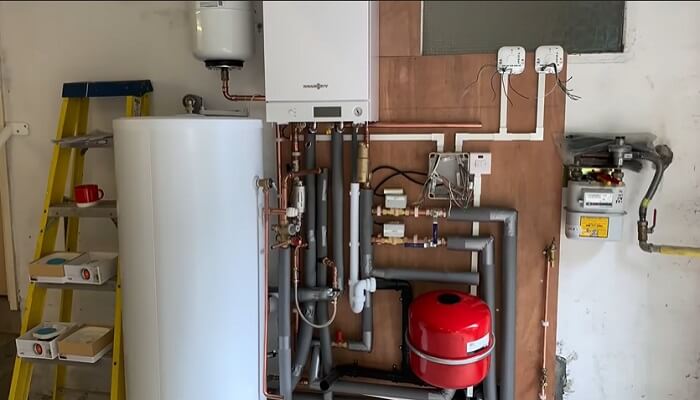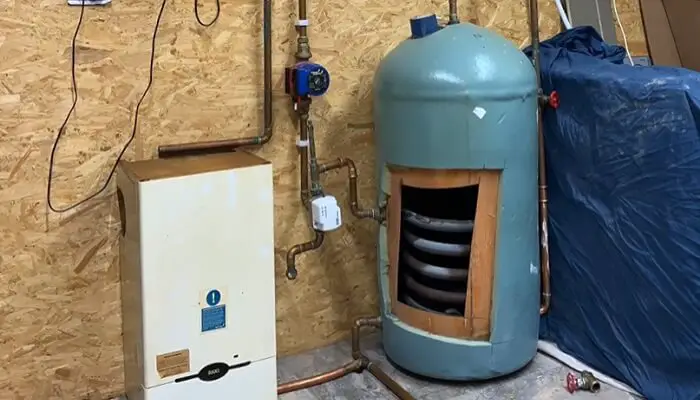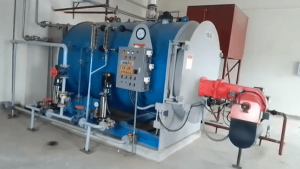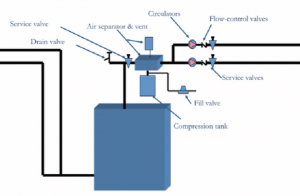Disclosure: As an Amazon Associate, I earn from qualifying purchases. Learn more
A boiler and furnace are two common types of heating systems. Though they both heat your home, they do so in different ways. Here’s a look at the key differences between boilers and furnaces to help you decide which type of system is right for your needs.
Boiler heating systems work by circulating hot water or steam through pipes that run through the home. The heated water or steam then warms the air in each room. Furnace heating systems work by blowing heated air directly into the rooms of your home from a central location. They use either gas or oil to generate heat, which is then blown into the ductwork that runs throughout your house.
One key difference between boilers and furnaces is their efficiency ratings. A furnace typically has an efficiency rating of around 80%, while a boiler can have an efficiency rating as high as 95%. This means that a boiler can save you money on your energy bills over time. Additionally, boilers are better at distributing heat evenly throughout space than furnaces are, making them ideal for larger homes with multiple rooms.
What is a Boiler? How Does a Boiler Work?
A boiler is a type of heating system that heats an office or home by using hot water or steam. Boilers are typically more energy-efficient than furnaces because they distribute heat more evenly. In addition, boilers can also be used to provide hot water for your home.
A boiler works by circulating hot water or steam through a series of pipes in your home. The heat is then distributed evenly throughout the house. Boilers are powered by oil, natural gas, and electricity.

What is a Furnace? How Does a Furnace Work?
A furnace is a type of heating system that uses hot air to heat your home. Furnaces are typically less energy-efficient than boilers because they rely on hot air, which can rise and escape through cracks in your home.
A furnace works by circulating hot air through a series of ducts in your home. The heat is then distributed evenly throughout the house. Furnaces also can be powered by natural gas, oil, electricity, or even wood.
Which Type of Heating System is Right for You?
The type of heating system that’s right for you depends on a number of factors, including the climate you live in, the size and layout of your home, and your personal preferences. If you live in a cold climate and your home is large, a furnace may be the best option. If you live in a mild climate and your home is small, a boiler may be the best option. Ultimately, the decision comes down to personal preference.
A boiler differs from a furnace in that a furnace transfers heat to its surroundings via conduction and radiation, whereas a boiler transfers heat via circulation. (However, some newer furnaces use a forced hot water circulation system similar to a boiler.)
A boiler relies on a water jacket surrounding the combustion chamber to transfer heat to the water or steam. This surrounds the chamber completely with water, or other fluid (such as oil), and this is a very effective way to transfer heat. The water jacket also serves to contain the combustion gases and direct their flow around the heating surfaces.
The National Fire Protection Association defines a boiler as “a closed vessel in which water or other fluid is heated. The fluid does not necessarily boil.”
Should You Have a Boiler or Furnace?
The easiest way to tell the difference between a boiler and a furnace is by looking at how the heat is distributed. A furnace uses ductwork to send the heated air through the house, while a boiler uses a system of pipes to deliver hot water or steam to radiators throughout the house.
There are some other key differences between boilers and furnaces that you should be aware of. For instance, boilers are usually fueled by natural gas or oil, while furnaces can be powered by a variety of fuels, including natural gas, oil, electricity, or even wood.

Another difference is that boilers typically heat water to generate steam, while furnaces heat air. And finally, boilers are usually more expensive to install and maintain than furnaces.
So, which is better for your home—a boiler or a furnace?
The answer to this question depends on a number of factors, including your climate, the size of your home, and your personal preferences.
If you live in a cold climate and you need a reliable way to heat your home, a boiler is a good option. Boilers are very efficient and can provide a steady supply of heat even during the coldest winter days.
If you live in a warmer climate, or if you don’t need a constant supply of heat, a furnace may be a better option.
Ultimately, the decision of whether to install a boiler or a furnace in your home is a personal one. Talk to a heating contractor to learn more about your options and find the best solution for your needs.

